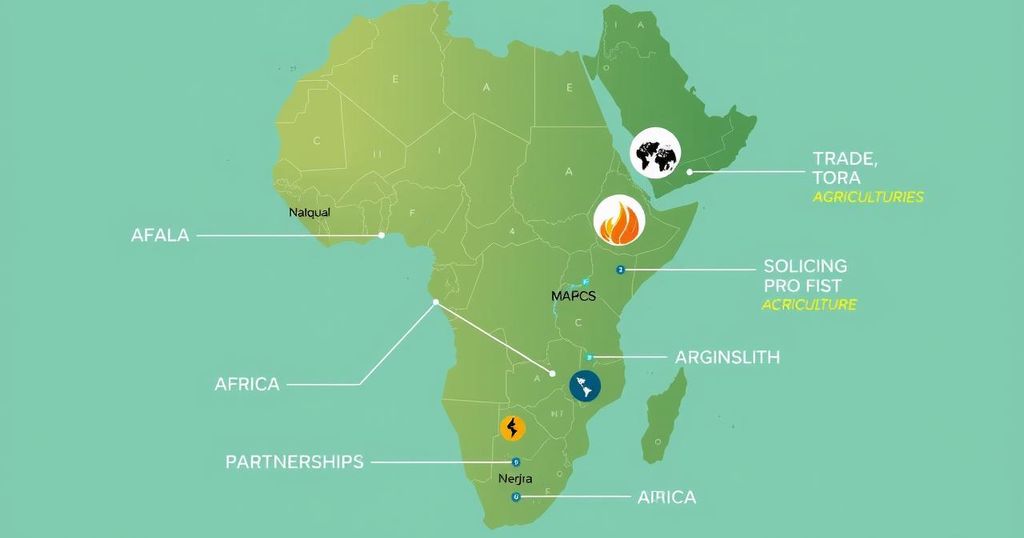France’s military withdrawals from Sahel and West Africa are creating opportunities for Turkey to enhance its influence in the region. Experts argue that Turkey, under President Erdogan, is capitalizing on dissatisfaction with French military efforts against insurgent threats. While Turkey’s arms industry is gaining traction, caution is advised regarding potential overstretch due to limited resources and economic issues.
France’s recent military withdrawals from the Sahel and West Africa have created an opportunity for Turkey to enhance its influence in the region, according to experts from RFI. The French military’s exit includes the abandonment of its sole base in Côte d’Ivoire and a withdrawal from Chad in January, part of a broader reduction of French presence in West Africa. This shift indicates a decrease in France’s engagement due to the desire of local states for a reduced foreign military footprint.
International relations expert Federico Donelli from Trieste University noted that traditional players, especially France, are stepping back not due to constraints, but because local nations prefer their departure. He believes Turkey is poised to fill this gap, citing Turkish President Recep Tayyip Erdogan’s substantial investments in Africa and a strategic diplomatic approach sensitive to historical contexts, especially regarding France’s colonial past.
Elem Tepecikoglu from Ankara’s Social Sciences University indicates that Turkey’s opportunity arose, as the French military has struggled to address insurgent threats effectively. He explains the tarnished image of France due to local criticism that its military operations have been counterproductive and ineffective against terrorism, thus opening the door for Turkey’s involvement in the region.
Tepecikoglu highlights the favorable zeitgeist for Erdogan’s Africa policy, marked by rising anti-French sentiments. He points to Turkey’s defense agreements with Sahelian nations and claims the presence of Turkish military advisers and drones in Chad, enhancing Turkey’s foothold in the region. Additionally, military ties were emphasized in an October meeting between Senegalese and Turkish officials, coinciding with calls for the removal of French forces.
Turkey’s competitive arms industry has gained popularity in African markets due to its affordability and fewer restrictions compared to Western suppliers. Tepecikoglu mentions that several Sahelian countries, including Nigeria, Mali, Burkina Faso, and Chad, have acquired Turkish drones and military equipment, enhancing Turkey’s military relationships across the continent.
While Turkey’s ambition in Africa is notable, experts caution that it remains a relatively minor player compared to the likes of Russia, China, and the United States. Donelli suggests that a security agreement with Turkey may be politically less risky for African states than engaging with Russia. However, he emphasizes that Turkey’s rapid expansion could lead to overstretching its military and economic capacities, as articulated by Huseyin Bagci of Ankara Middle East Technical University.
Bagci argues that the costs associated with Turkey’s expansive military and diplomatic endeavors could indeed be unsustainable. Given Turkey’s economic difficulties and Erdogan’s interest in improving relationships with Europe, including France, a shift from rivalry to cooperation in Africa may become increasingly necessary.
In summary, Turkey is strategically poised to capitalize on the gaps left by France’s military withdrawals in Africa. With significant investments in military and diplomatic relations, Turkey is establishing itself as a key player in the region. However, experts warn of potential overstretch given the country’s limited resources and ongoing economic challenges. A balanced approach may be essential for maintaining influence without compromising sustainability.
Original Source: www.rfi.fr






